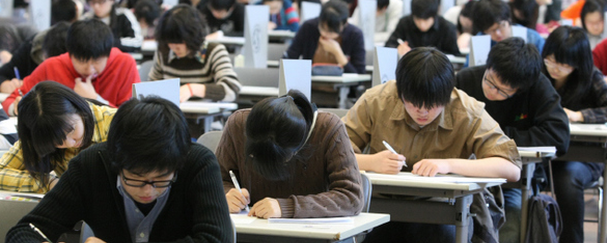This domain (www.cognifyhub.net) is for sale. for inquiries, please email inquiry@ginoborlado.org
AI in Education: South Korea’s Digital Textbooks Spark Concerns Over Student Dependency
Explore the benefits and pitfalls of AI in education as South Korea introduces AI-powered digital textbooks. Discover how personalized learning can enhance student experiences while addressing concerns about digital dependence and the widening digital divide.


As the world embraces the digital age, education is no exception. South Korea’s Ministry of Education is set to launch AI-enhanced digital textbooks next semester, hoping to modernize the classroom experience. However, this move is stirring debate among educators, parents, and experts. Many question if integrating artificial intelligence into everyday learning might deepen students’ dependency on technology, potentially hindering their critical thinking and creativity.
The Push for AI in Education
The Ministry of Education aims to revolutionize how students learn by rolling out AI-based digital textbooks in the coming semester. These new textbooks will feature personalized content, adjusting to individual students’ learning levels and providing real-time feedback to teachers. Starting in March, select classes in English, mathematics, and IT for elementary and secondary students will use a combination of traditional paper books and these advanced digital versions.
Officials believe that by leveraging AI, the rigid, one-size-fits-all teaching model can be replaced with a more adaptable approach, catering to each student’s unique pace and abilities. Teachers will gain access to detailed analytics, allowing them to tailor lesson plans and address students’ specific needs effectively.
Teachers Voice Skepticism Over Rapid Rollout
Despite the optimistic vision, many teachers are wary of the quick transition to AI tools, fearing they may not be adequately prepared for such a significant shift in teaching methods. A high school English teacher from Seoul, identified as Ms. Kim, shared her concerns after attending an AI training session. “We were all just experimenting, clicking around without any real guidance,” she noted. Even the instructors admitted that the system was still in its beta phase, suggesting that full mastery would take time.
The pressure to adapt to this new technology comes with its own set of challenges. While AI can provide customized learning experiences, excessive screen time may lead to eye strain, and students may struggle to balance digital and traditional learning methods, especially with exams still conducted on paper.
Parental Concerns and the Digital Divide
Parents are also hesitant about the shift toward digital learning, especially since many are already worried about their children’s screen time. There’s even a proposal in the works to ban smartphones in schools, highlighting the growing resistance to digital devices in the classroom.
Adding to the concerns, experts warn that introducing AI-powered textbooks might widen the digital divide among students. Park Joo-ho, an education professor at Hanyang University, pointed out that access to technology often correlates with a family’s socioeconomic status. “Students from wealthier families may find it easier to adapt, while those from less privileged backgrounds could fall behind,” he explained.
Potential Risks of Over-Reliance on Digital Tools
One of the biggest fears is that students might become too dependent on technology, losing the ability to engage in deeper, critical thinking. Professor Park emphasized that consuming information on a digital screen often limits students to what’s directly in front of them, reducing opportunities for broader reflection and analysis. This could stifle creativity, as students may start relying on AI tools for answers rather than developing problem-solving skills themselves.
Moreover, while AI textbooks are designed to assist with individualized learning, the technology currently focuses on assessing basic skills like problem-solving. Experts argue that this limited scope makes it premature to integrate AI fully into educational settings.
A Call for Caution
Although AI-enhanced learning tools hold great promise, the transition needs careful consideration. Teachers, parents, and education experts all agree that while personalized learning can benefit students, there’s a real risk of unintended consequences if the technology is implemented without sufficient training and oversight.
For now, the Ministry of Education is pushing forward, with plans to finalize the verification and adjustments of the digital textbooks by the end of November. However, the mixed reactions from stakeholders suggest that a more gradual approach might be necessary to ensure that both teachers and students can adapt without losing the benefits of traditional learning methods.
